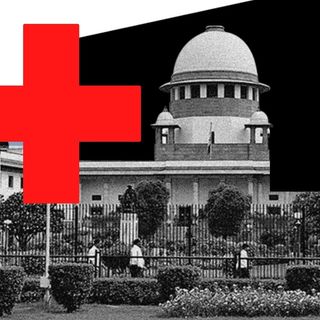Procrastination is the bane of most people’s existence — we know leaving tasks until the very last moment is a pandora’s box of anxiety, uncertainty, and panic, but it’s still a popular way in which we like to structure our time. The healthier opposite, at least logically, would be to get tasks done as soon as possible, right? Wrong. It’s called precrastination, and it can be just as unhealthy.
Precrastination is when people rush to get tasks done as soon as possible — it includes responding to emails, even the unimportant ones, first thing in the morning; or flipping rotis on the tawa before they start to show bubbles; it can mean cleaning dishes as soon as they get dirty — only for the sake of getting a task done faster. It’s not an uncommon phenomenon, fuelled by the desire to check things off one’s to-do list, in an attempt to not have those tasks lingering on the mind later, perhaps cluttering up headspace and becoming a source of anxiety.
So, while the tendency to precrastinate might seem like a positive trait, it often leads to similar negative emotions as procrastination. A 2014 experiment by Pennsylvania State University psychologist David Rosenbaum shows hyper-diligence might not be a worthy trait to pursue. In his study, Rosenbaum asked college students to carry a bucket to a finish line, asking them to do it in the easiest way possible. They had two choices — carry the bucket placed halfway down the path, or carry the bucket that was farthest from them (and closest to the finish line). To Rosenbaum’s surprise, most of the study participants chose the bucket closest to them, and decided to carry it for a longer period, than choose the one closest to the finish line and save themselves some exertion.
Related on The Swaddle:
Why Some People Fall Apart Under Pressure
In doing so, the college students prioritized getting started on a task earlier, even if it meant expending more energy in the longer term. In short, they chose to work hard, rather than work smart. And that’s the main problem with precrastination — it enables people to focus on urgent, easy-to-do tasks, often low-hanging fruit that they can master and get out of the way quickly. But in doing so, people often leave important, more time- and energy-consuming tasks for later, which are what they should have been saving their efforts for. Another drawback to precrastinating is the frenzy that accompanies the satisfaction of getting tasks done early, with the sole purpose of getting them done driving the productivity surge. This hurried frenzy can replace careful planning and thought, ending in the rushed, often erroneous completion of a task, such as an extra hard roti, or a 20-minute walk to a restaurant that had just started offering valet services.
Conscientiousness, eagerness to please, and high energy are traits commonly present in precrastinators, Rosenbaum tells the BBC. But it’s important for precrastinators to identify the tasks that are too trivial for their time and energy, so as to be able to prioritize what really matters. In the same vein, procrastinators need to be able to identify which tasks are important and need their time and energy, so as to be able to do justice to what really matters.
Both procrastination and precrastination come from people trying to find shortcuts in how to be efficient and productive — for some, the pressure of last-minute deadlines provides a boost, for others, the instant gratification of early progress is the clincher. But at the end of the day, the only practice that can actually help someone better organize their tasks and lives is careful, strategic planning. The New York Times has answers: delegate tasks, streamline processes, get better at saying no, and above all, value quality over quantity.




